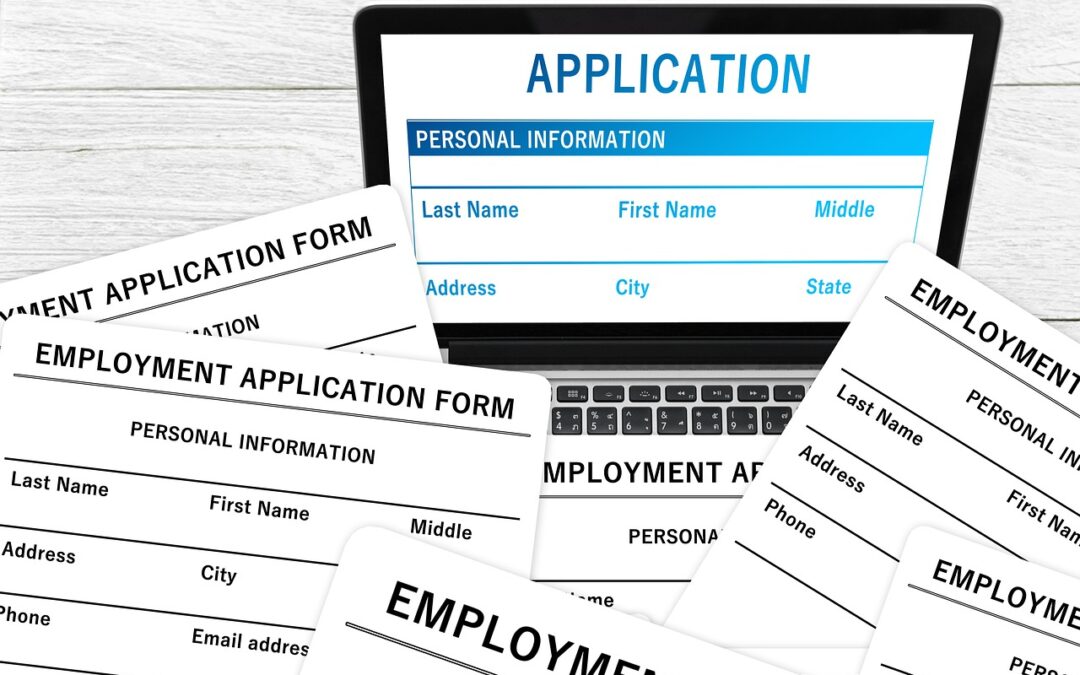When was the last time you reviewed your company’s employment application form? Your application form can provide valuable information about job seekers, more than may be included on their resume. Plus your application form allows you to make specific and standardized inquiries about the candidates’ work and educational backgrounds. But be sure your employment application complies with federal, state and local laws.
Avoid These Mistakes
- Don’t ask about protected characteristics – Your hiring process must be free from discrimination from all applicable federal, state, and local employment laws. You may not ask job candidates questions that would reveal directly or indirectly characteristics about race, color, age, national origin, religion, sex, veteran status/military status, disability, and genetic information.
- Criminal conviction – Check your state and local laws since several prohibit questions about criminal convictions on employment applications. And you may be required to wait until after making a conditional employment offer to candidates before checking on this. It’s thought that employers are more likely to objectively assess the relevance of a candidate’s conviction if it becomes known after vetting qualifications and experience.
- Social Security Number – Federal law doesn’t prohibit you from asking for this on your employment application, but it’s not considered a best practice because of the risk of identity theft. Plus some states may require encrypting this data if your application form does ask for a social security number and it’s completed via the Internet.
- Include the FCRA Notice – Under the Fair Credit Reporting Act (FCRA), before conducting a background check on a candidate using a third party, you must inform them you may use the information to make employment decisions. The FCRA notice must be in writing and in a stand-alone format – it may may not be provided in an employment application. Also, check your applicable state and local laws on background checks, which may have additional rules.
- Salary history – Many state and local jurisdictions have laws that restrict or prohibit you from asking about salary history during the hiring process. It’s thought that a candidate’s pay history may reflect a discriminatory pay practice of a previous employer which could lead to lower wages in the new job. If your state or locality prohibits salary questions, be sure to remove them from your application form and train your managers not to ask about pay history during the hiring process.
Your employment application form is a valuable part of your hiring process. But it’s important to review it to make sure it complies with all relevant federal, state, and local laws.
With expert level knowledge on payroll compliance and processing, CRI Payroll Services can also help you navigate confusing HR regulations during the hiring process with specific HR tools and services. Learn how CRI Payroll Services can support your business with seamless payroll, HR, and bookkeeping services that relieve you from the hassles of those functions.

